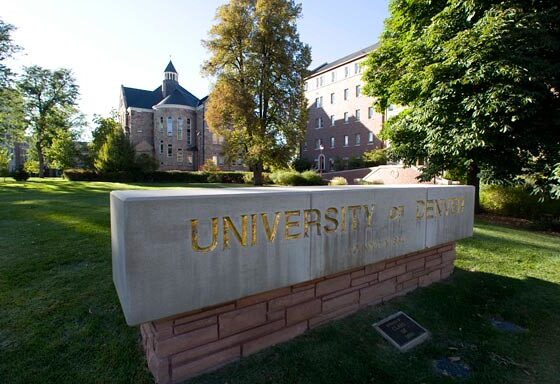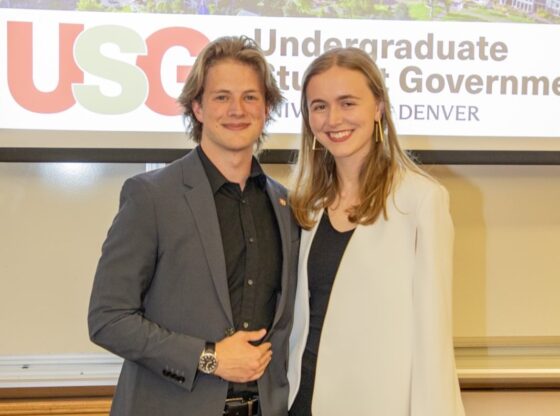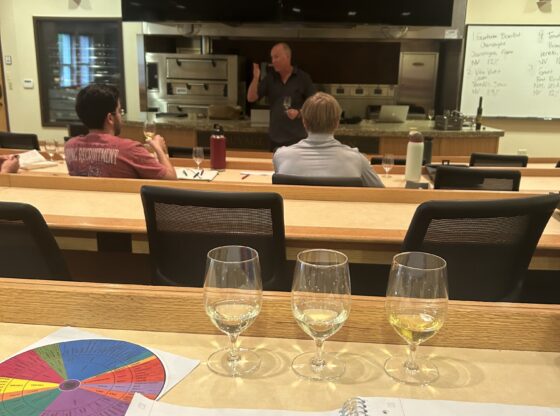Jen Masztaler goes through metal detectors twice a week during the summer. Police rides and appearances in court are common for this University of Denver senior.
Masztaler doesn’t have a criminal background. She is interested in the justice system.
This past summer Masztaler was an intern at the Denver District Attorneys Office where she was able to apply her skills learned in the classroom to everyday situations.
“It was interesting to see something that you already know about in a different and exciting way,” said Masztaler.
Even though she was given an exciting assignment, Masztaler also had to work long hours and weekends as a waitress to subsidize the internship, which was unpaid.
“It would have been better to be paid for my internship this summer because I would have been able to spend more than just two days a week at the office,” said Masztaler.
The Marsico Summer Internship Grant Program was created to help students like Masztaler subsidize for unpaid internships and come out of it with a much better experience. This program offers 25 undergraduate students $2,500 grants for unpaid summer internships.
The main criteria are that students must be majoring in the Arts and Humanities, Social Sciences, and Natural Sciences and Mathematics to apply.
Ruth Prochnow, Marsico Internship coordinator, attended the AUSA Senate meeting this past Tuesday to start getting the word out about this new program.
“There are opportunities out there to help students but they are not always paid. This program can change that,” said Prochnow.
The grants offered have been set up through the Marsico Initiative. Alumni Tom and Cydney Marscio donated $10 million to DU to start the Marsico Initiative program, which is designed to enhance academic intensity and excellence in the undergraduate arts and sciences curriculum.
Allowing for internship opportunities is not the only aspect of Marsico. This initiative so far has fostered increased mentoring opportunities for first-year students, incorporated creative writing classes into various curriculums, expanded experimental learning programs and help fund visiting scholars.
The internship portion of the initiative has plans to grow every year. The first year 25 students will be awarded funds. Next year there are plans to raise the number of awards to 50.
“This program is structured similar to that of the Cherrington. Its umbrella structure can reach a wide variety of the undergraduate students,” said Prochnow.
The application process is anticipated to be very competitive, according to Prochnow.
It includes information about the internship that the student has secured, anticipated duties at the internship, what the grant funds will be used for, and finally an essay answering the question of why you would like to participate in an internship and skills that one will develop there.
“The committee will be looking for clarity of thought and grammar in the essays. When applying I want the students to make sure that they take their time and put thought into what they are writing,” said Prochnow.
Applications are due by 4:30 p.m. on April 15. Late applications will not be accepted. Applications can be found in the Career Center or by going online and joining Marsico Internship Initiative Portfolio. To join send an email to duintern@du.edu. In the e-mail include your full name, e-mail address, nine digit student ID number, major and grade level.
All applications, including essays, will be reviewed by a committee composed of faculty and staff. Students will be notified by e-mail on May 16 on whether or not they received the grant. Winners of the grant will also be notified by phone.
Masztaler wished she had this opportunity while she was an intern but is glad that future interns will be able to take advantage.
“Just because an internship is not paid doesn’t mean that it’s not worth while. It just makes life that much easier,” said Masztaler.












